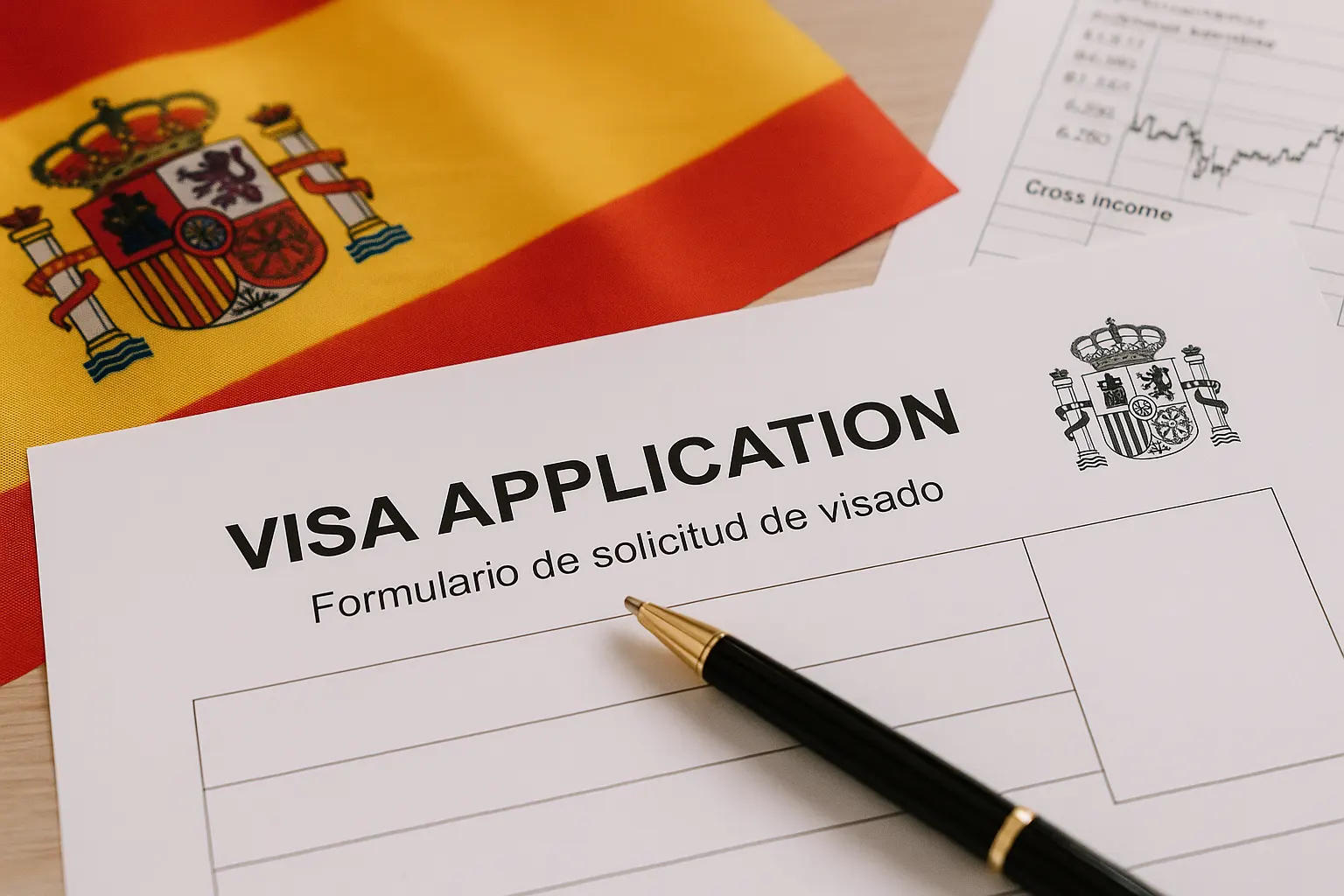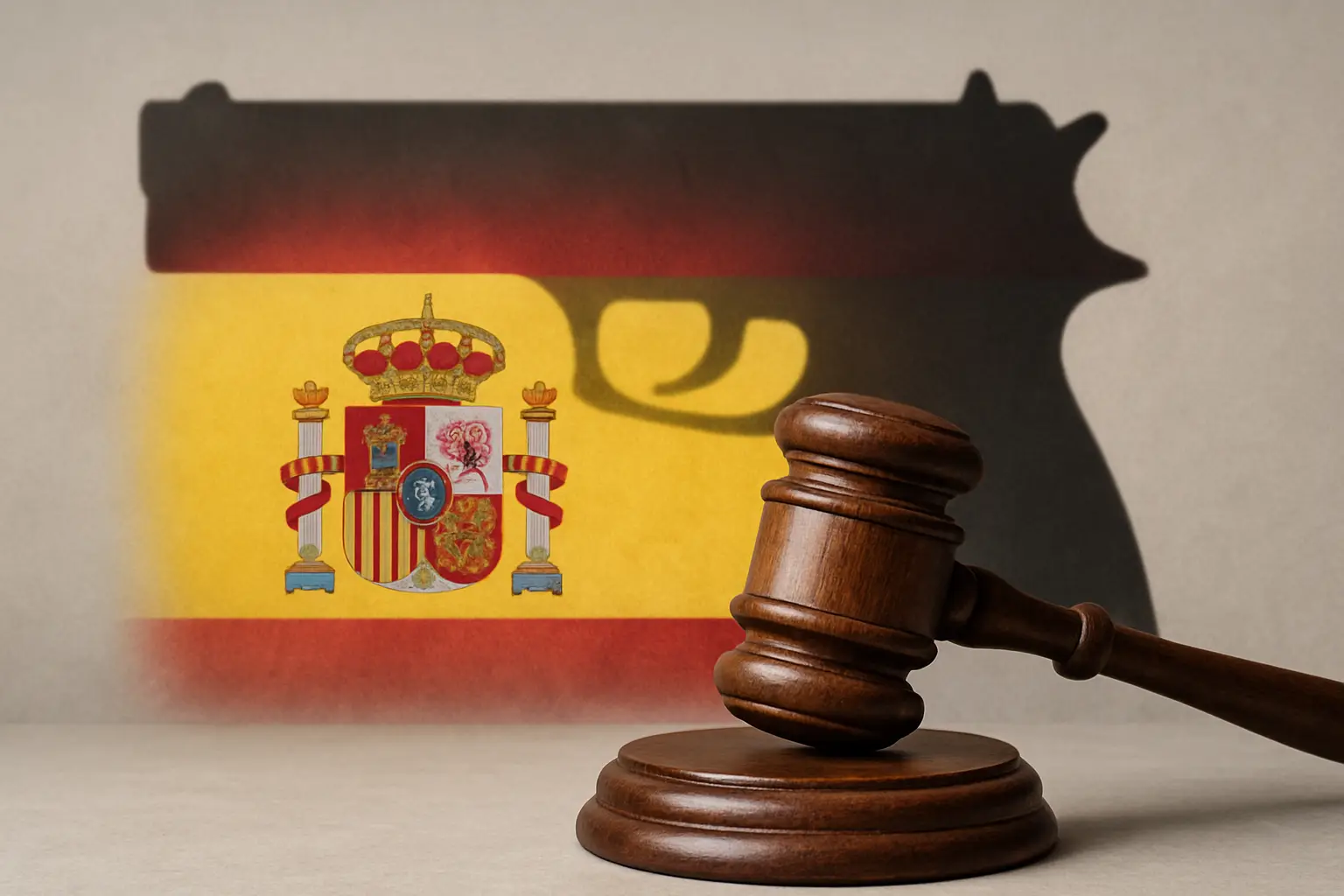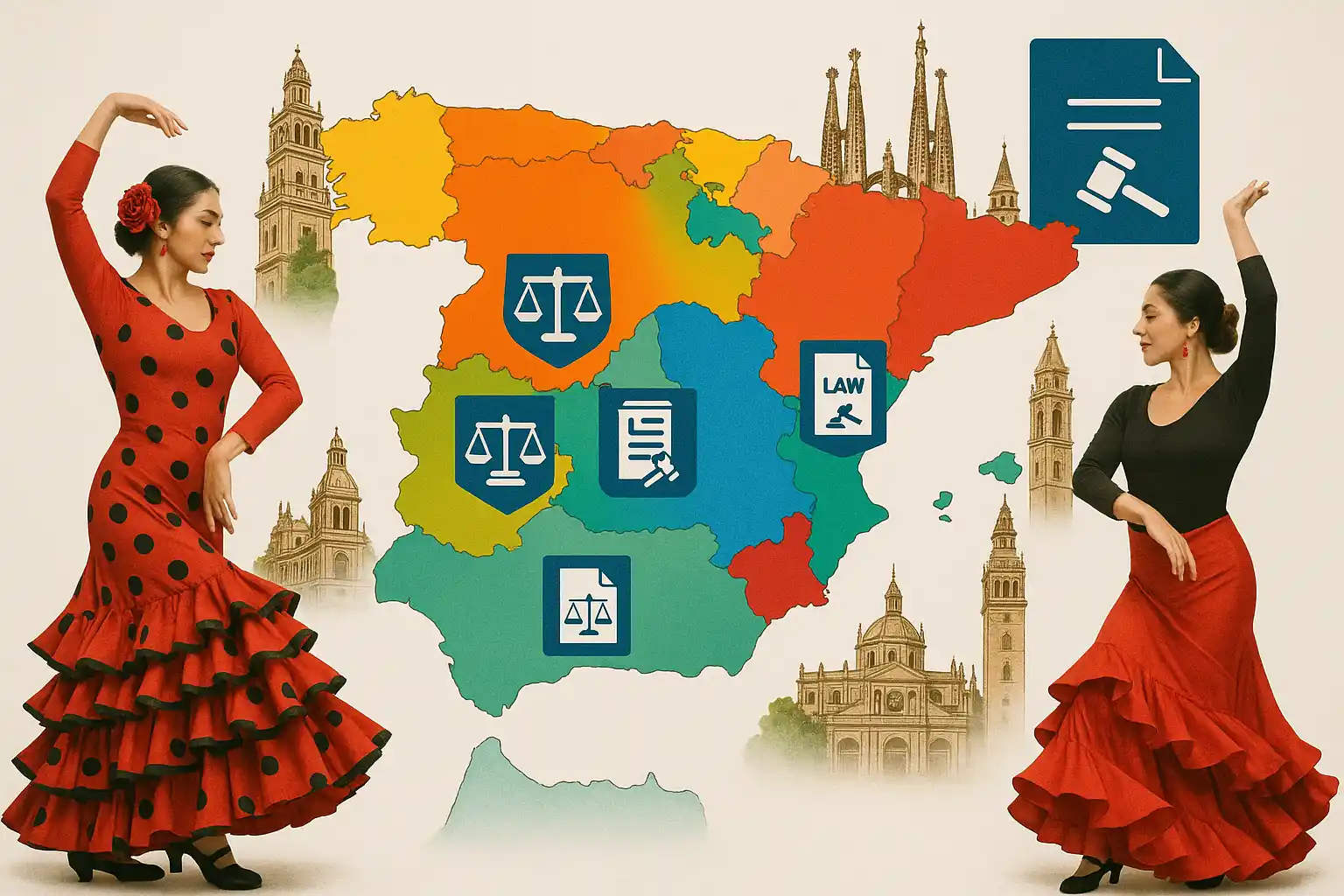The rise of remote work has fueled strong interest in digital nomad visas across Europe. Spain and Estonia emerge as top choices, each attracting a growing community of location-independent professionals.
- Spain offers a vibrant cultural scene and Mediterranean lifestyle, making the Spain digital nomad visa an attractive option for many.
- Estonia provides cutting-edge digital infrastructure and seamless EU access.
Key takeaway: The Spain digital nomad visa vs Estonia digital nomad visa debate hinges on individual priorities. Both programs feature distinct advantages and specific requirements. For instance, the Spain digital nomad visa can even lead to residency and citizenship if certain conditions are met. Careful assessment of your personal circumstances ensures the best fit for your remote working journey.
If you’re considering applying for the Spain digital nomad visa, seeking advice from a specialized lawyer can facilitate a smoother application process. Furthermore, understanding the tax implications is crucial; you can find detailed information on how digital nomads pay taxes in Spain.
Understanding Digital Nomad Visas in Europe
Digital nomad visas in Europe serve a specific purpose: to provide legal authorization for remote workers to live and work in a foreign country without the typical restrictions of standard tourist or work visas. These visas recognize the evolving nature of work, where location independence is increasingly common.
Key characteristics of remote work visas Europe include:
- Long-term stay permits: Unlike tourist visas limited to short visits, digital nomad visas allow stays ranging from six months up to a year or more.
- Legal remote work allowance: Holders can perform their professional duties for employers or clients located outside the host country while residing there.
- Simplified application processes: Designed with remote professionals in mind, these visas often require proof of stable income rather than local employment contracts.
The rising popularity of digital nomad visas reflects a shift toward flexible lifestyles. Remote workers benefit from legal clarity, avoiding risks associated with working on tourist permits. Countries offering these visas gain economic advantages by attracting skilled professionals who contribute locally without competing for domestic jobs.
This convergence of interests fosters an expanding market for digital nomad visas in Europe, encouraging innovation in immigration policies tailored to the modern workforce. Spain and Estonia exemplify this trend, each providing frameworks that balance accessibility with regulatory safeguards. Such developments shape new opportunities for those seeking international mobility combined with professional continuity.
Spain’s Digital Nomad Visa: A Closer Look
Spain has introduced a visa tailored to the needs of remote workers seeking to combine professional commitments with the country’s vibrant lifestyle. Officially known as the International Teleworking Visa Spain, this permit enables digital nomads to reside legally in Spain while working remotely for companies based outside the country.
Visa Duration and Official Details
The Spain digital nomad visa allows stays of up to one year initially, with the possibility of renewal for up to five years in total, providing long-term stability for remote professionals. This duration supports extended stays compatible with both work and leisure, distinguishing it from shorter tourist visits.
Applicants must meet specific conditions outlined on the Spain digital nomad visa official website and through Spanish consulates worldwide. These requirements set this visa apart within Europe, reflecting Spain’s commitment to attracting international talent.
Eligibility Criteria: Income, Education, and Company Age
The Spanish nomad visa requirements focus on demonstrating financial independence and stable remote employment:
- Income requirements: Applicants need to prove a minimum monthly income equivalent to at least 200% of the Spanish Public Indicator of Multiple Effect Income (IPREM), roughly around €2,334 per month as of 2024. This ensures applicants are financially self-sufficient during their stay. For detailed information on these income requirements, you may refer to this resource.
- Employment status: The applicant must be employed by or own a company that has been active for at least one year. Freelancers or entrepreneurs providing services primarily to foreign clients also qualify under certain conditions.
- Educational qualifications: While no strict degree requirement exists for all applicants, some consulates may request proof of higher education or relevant professional experience tied to the remote work being performed.
- The applicant should not intend to work for Spanish companies but rather carry out teleworking activities for entities headquartered abroad.
Application Process
Filing an application for the digital nomad visa in Spain involves several key steps:
- Document submission: Applicants prepare essential documents including proof of income, employment contracts or business registration certificates (with company age verification), health insurance valid in Spain, background checks, and a detailed description of their teleworking activities.
- Consulate appointment: Submission typically requires an in-person or online appointment at a Spanish consulate or embassy in the applicant’s country of residence.
- Processing time: Approval times vary but usually range from 1 to 3 months depending on circumstances and local consular workload.
This streamlined process contrasts with more complex residency permits, making it accessible for many digital nomads.
Taxation Under the Spanish Scheme
One notable advantage of the Spain digital nomad visa is eligibility for special tax treatment under Spain’s Beckham Law regime (officially known as the Special Tax Regime for Foreign Residents). Qualifying individuals may benefit from:
- A flat tax rate of 24% on income up to €600,000 earned worldwide during their first six years in Spain.
- Simplified tax compliance procedures compared to ordinary resident taxation.
- Potential exclusion from some Spanish social security contributions if already covered abroad.
Understanding these taxation rules is crucial because they can significantly affect net income and financial planning while living under the digital nomad visa scheme.
Living as a Digital Nomad in Spain
Spain’s appeal extends beyond its visa program; its cities
Estonia’s Digital Nomad Visa: An Overview
Applying for Estonia’s Digital Nomad Visa
The Estonia digital nomad visa requirements focus on enabling remote workers to legally reside and work from Estonia for up to one year. The application process is straightforward but requires careful preparation to meet all criteria.
Key eligibility criteria include:
- Proof of remote work for a company registered outside Estonia or as a freelancer with clients primarily outside Estonia.
- Minimum monthly income threshold, typically around €3,504 gross (or equivalent in other currencies) sustained for the last six months prior to application.
- Valid passport with at least three months’ validity beyond the intended stay.
- Health insurance coverage valid in Estonia for the entire duration of the visa.
The Estonia visa digital nomad application process consists of several clear steps:
- Pre-registration online: Applicants start by registering their intent to apply through the official Estonian Police and Border Guard Board website. This step involves filling out personal information and details about employment or freelance activities.
- Document preparation: Gather necessary documents including employment contracts, proof of income (bank statements, invoices), passport copies, health insurance certificates, and a motivation letter explaining the reason for choosing Estonia as a base.
- Scheduling an embassy appointment: Applicants must book an appointment at the nearest Estonian embassy or consulate. Some locations offer online submission options depending on local regulations.
- Submission and biometric data collection: During the appointment, submit all required documents and provide biometric data (fingerprints and photo). Fees associated with the visa application are paid at this stage.
- Application processing: Processing times vary but typically take up to 30 days. Applicants can track status online or inquire via embassy communication channels.
- Visa issuance: Once approved, applicants receive a long-term D-visa allowing them to stay and work remotely in Estonia for up to 12 months.
The structured nature of this process reflects Estonia’s commitment to attracting digital nomads while ensuring legal clarity and compliance with immigration standards. Comparing with other European digital nomad visas, Estonia’s streamlined steps leverage its advanced e-governance system, minimizing bureaucracy.
Applicants should note that meeting the income requirement is essential; failure to provide sufficient proof can delay or result in rejection. Additionally, having comprehensive health insurance covering all medical needs during the stay is mandatory under Estonian law.
The digital nomad visa comparison often highlights Estonia’s appeal through its simplicity combined with access to Schengen Area travel freedoms. This makes Estonia an attractive hub for those seeking both legal certainty in remote work status and ease of movement across Europe.
Understanding these application nuances prepares candidates to navigate the process confidently and maximize their chances of securing the Estonia – digital nomad visa successfully.
Embracing the Digital Nomad Lifestyle in Estonia
Estonia’s digital nomad visa program stands out with clear Estonia digital nomad visa requirements designed to attract remote workers seeking flexibility and connectivity. Applicants must demonstrate a minimum monthly income, typically around €3,504 gross, provide proof of valid health insurance covering their stay, and confirm accommodation arrangements in Estonia. These criteria ensure that digital nomads can sustain themselves comfortably while integrating into Estonia’s society.
Tallinn: A Hub for Remote Workers
Tallinn, the capital, serves as a vibrant hub for remote workers. The city combines modern infrastructure with an innovative digital lifestyle, making it ideal for professionals dependent on reliable internet and tech-savvy environments. Numerous coworking spaces like Lift99 and Spring Hub offer collaborative work environments equipped with high-speed internet and networking opportunities. This supports productivity while fostering community among digital nomads.
Travel Benefits within Europe
One significant advantage of residing in Estonia under this visa is the unrestricted access to the Schengen Area. Digital nomads can travel freely across 26 European countries without additional visas, facilitating business trips and leisure travel within Europe.
Comparing Visa Options: Estonia vs Spain
When evaluating Spain digital nomad visa vs Estonia digital nomad visa, consider Estonia’s streamlined application process and commitment to a fully digital government experience. This contrasts with Spain’s broader lifestyle offerings but often more complex procedures. Estonia appeals to those prioritizing ease of application, strong digital infrastructure, and strategic European mobility.
Comparing Spain and Estonia: Key Considerations for Digital Nomads
|
Feature |
Spain Digital Nomad Visa |
Estonia Digital Nomad Visa |
|
Duration |
Up to 1 year, with possibility of renewal |
Up to 1 year, no renewal option currently |
|
Minimum Income Requirement |
Approx. €2,000/month |
Approx. €3,504/month (based on €42/month x 12 months) |
|
Taxation |
Potential for non-resident tax status if stay <183 days; special Beckham Law tax regime available for some applicants |
Standard Estonian taxation applies after 183-day threshold; digital nomads generally taxed as residents if applicable |
|
Application Complexity |
Moderate; requires documentation of income, employment, and background checks; online and in-person options available through legal assistance |
Relatively straightforward; online pre-registration followed by embassy appointment |
|
Family Inclusion |
Allows family members to accompany under dependent visa categories |
Family members can join but require separate applications and meet additional criteria |
|
Work Flexibility |
Remote work allowed for foreign companies or self-employed activities outside Spain |
Remote work permitted for foreign employers or own business outside Estonia |
|
Living Environment & Lifestyle |
Vibrant urban centers like Barcelona and Madrid; rich culture, Mediterranean climate, extensive amenities for expats and digital nomads |
Tallinn offers modern infrastructure, strong digital services ecosystem, access to Schengen Area travel freedoms |
This digital nomad visa comparison Spain Estonia highlights key distinctions that influence the decision-making process. Spain’s visa emphasizes longer-term residency options with possibilities for renewal and tax advantages through specialized regimes like Beckham Law. Estonia focuses on streamlined application processes leveraging its digital governance strengths and benefits from being part of the Schengen Area.
Income thresholds differ notably, reflecting cost-of-living variations between the two countries. Family inclusion policies also require careful consideration depending on individual circumstances. Work flexibility is broadly similar but may be influenced by specific national regulations.
Lifestyle preferences may tip the scale—Spain’s cultural richness contrasts with Estonia’s high-tech environment, impacting daily life and community engagement for remote workers.
How NIM Immigration Lawyers Can Help You Navigate the Application Process in Spain
NIM Immigration Lawyers Spain specialize in Spanish immigration law with a strong focus on digital nomad visa applications. Their expertise streamlines the complex process, ensuring applicants meet all legal requirements efficiently.
Key services include:
- Personalized online consultations that clarify eligibility and document preparation.
- Digital nomad visa assistance tailored to individual circumstances, including income verification and company documentation.
- Electronic file management for seamless submission and tracking without in-person visits.
- Comprehensive guidance on tax implications and residency rights connected to the visa.
- Support for family inclusion under Spanish immigration policies.
Clients benefit from a professional team combining legal knowledge with modern technology, offering trustworthy and affordable service. The firm’s commitment to prompt, personalized attention reduces uncertainty during application processing.
“NIM’s digital approach simplifies navigating Spain’s digital nomad visa system, helping remote workers establish their new life with confidence.”
Conclusion
Choosing between Spain vs Estonia digital nomad visas depends on several personal factors that shape the ideal remote working experience.
- Desired length of stay: Spain offers longer visa durations with potential extensions, suitable for those planning extended residencies. Estonia’s visa is typically shorter but provides easier access to Schengen travel.
- Family considerations: Spain’s policies generally support family inclusion with clearer pathways for dependents, making it attractive for nomads relocating with partners or children.
- Preferred living environment: Spain’s vibrant urban centers like Barcelona and Madrid provide a rich cultural lifestyle and warm climate. Estonia’s capital Tallinn appeals to those valuing modern infrastructure, a compact cityscape, and cooler northern European ambiance.
- Income and taxation: Assess minimum income requirements alongside tax obligations in each country to ensure financial feasibility.
- Application complexity and support: Spain’s process may require professional assistance from firms like NIM Immigration Lawyers, while Estonia’s application is more streamlined but still requires careful adherence to regulations.
Each option delivers unique advantages tailored to different priorities, emphasizing the importance of aligning visa choice with individual lifestyle preferences and long-term goals.














